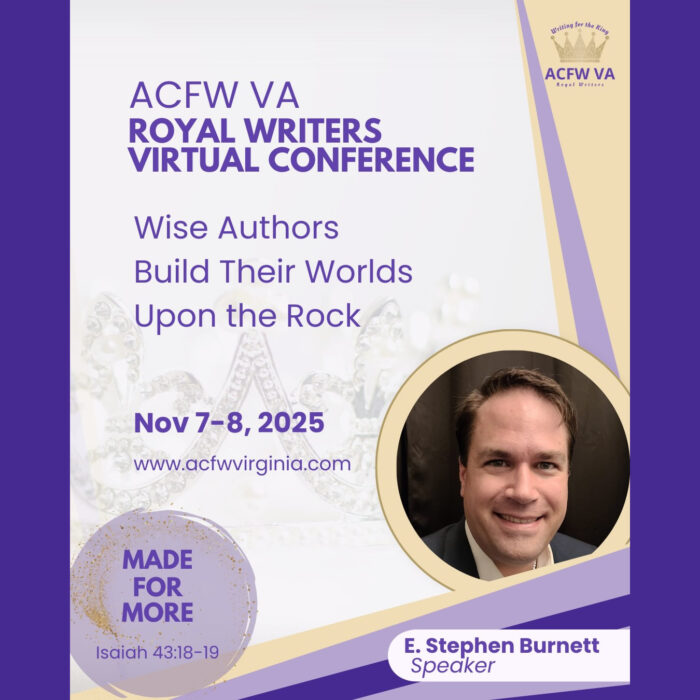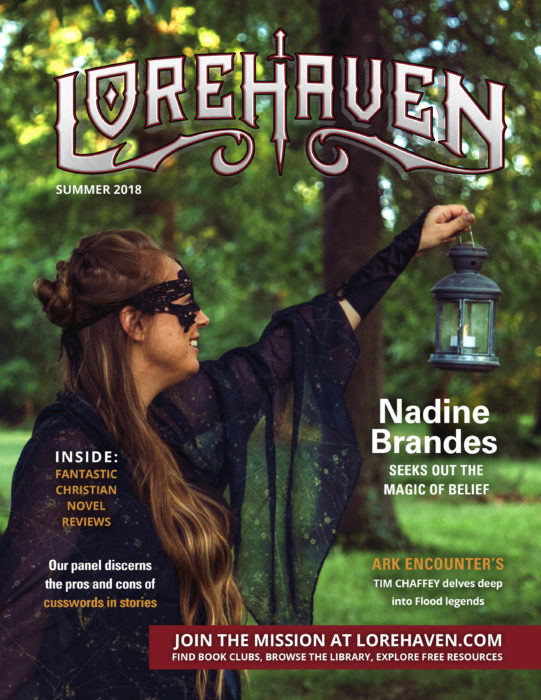The Best Arguments Against Cussing in Stories
This Thursday, I’ll head to Fort Worth, Texas, to aid the cause of Realm Makers Bookstore at Great Homeschool Convention.
Meanwhile, here’s an excerpt from Lorehaven Magazine‘s summer 2018 issue.1 It’s from our fascinating Roundtable discussion about story language—vulgarities, cussin’, and anything in between.
What are the best arguments against story language?
E. Stephen Burnett:
For example, some Christians seem to assume that if you read (or hear) a bad word in fiction, then you will inevitably tend to use this word, in a sinful way, in real life.
I’ll confess: there is some truth to this, at least for me. Looking back, I kept my own language fairly “clean”—until about the time I started watching comedy YouTube videos starring intentionally foul-mouthed hosts. The difference is this: They’re using these words to be funny (whether this is acceptable is another issue). But I tend to use these words when I’m angry (which is a sin!).
Laura VanArendonk Baugh:
“Sometimes the adrenaline high and self-congratulation of moral outrage can replace actual discernment.”
— Laura VanArendonk Baugh
Obviously if something is affecting you, you take steps. If I watch a lot of film noir and I find myself wanting to smoke, I need to come up with an alternate behavior for myself. If I play a lot of Assassin’s Creed and I start feeling myself tempted to parkour over a railing and down an atrium, I need to resist. (I resisted.) If I watch or read a lot of language and start using it in a way that’s offensive to others and/or myself, I need to examine that and make a call.
Morgan Busse:
“It’s about each person knowing their limits and placing those before God.”
— Morgan L. Busse
Some Christians are truly concerned about certain language used in fiction. Either they have not thought through their convictions and know where their own line is, or as Laura pointed out, they have double standards (which need to be addressed). However, there are times when the language serves no purpose in the story. And let’s be honest, there is an assumption out there concerning Christian fiction that there won’t be any bad language, or if there is, there is a really good reason.
Steve Rzasa:
“Blasphemies and misuses of God’s name irk me more than ‘regular’ swear words.”
— Steve Rzasa
Christian publishers can rightly make the case that, if they’ve built a business on books that don’t contain profanity, they shouldn’t put it in. They’re more likely to drive off some readers for those same reasons we’ve articulated, whether or not we agree with those reasons.
I don’t think adding profanity to a explicitly Christian line-up will attract new readers. Different stories will do a better job at that than the language used in those stories.
Mike Duran:
There is no disputing that reading and/or hearing profanity can negatively seed our imagination. Listening to people cuss tempts us to cuss. Bottom line. Full-stop.
“Separation from the world is a spiritual state, not a literal checklist.”
— Mike Duran
Here’s the problem, as I see it: Any contact with a fallen world can tempt us to sin. Living around people with unhealthy lifestyles, values, and habits can influence us to mimic those things. However, as Christians, we can’t isolate ourselves from sinners because they might tempt us to sin. In other words, it’s wiser for us to cultivate discipline in resisting evil than it is closing our eyes and ears to every possible form of evil we encounter.
Separation from the world is a spiritual state, not a literal checklist.
Read the rest of this Roundtable discussion in Lorehaven Magazine’s summer 2018 issue (PDF download).
You can also subscribe for free and get access to every issue. That will include the March 2019 issue out later this month.
Lorehaven serves Christian fans by finding biblical truth in fantastic stories. Book clubs, free webzines, and a web-based community offer flash reviews, articles, and news about Christian fantasy, science fiction, and other fantastical genres.
- Subscribers can download the issue PDF here. We haven’t (yet) made the content available in web article form. ↩












Share your thoughts, faithful reader (and stay wholesome!)